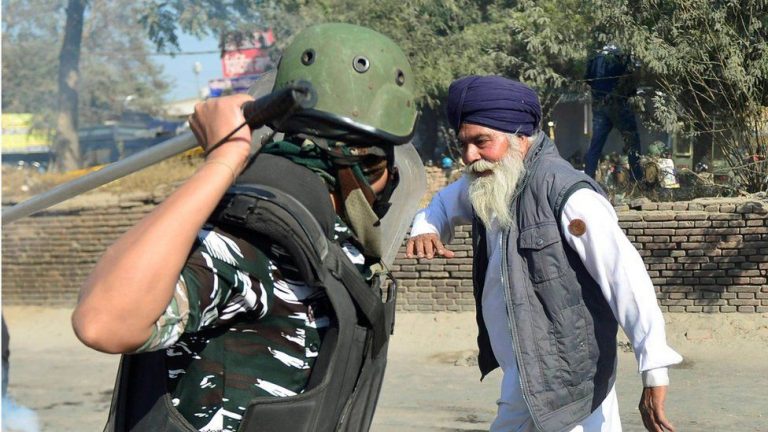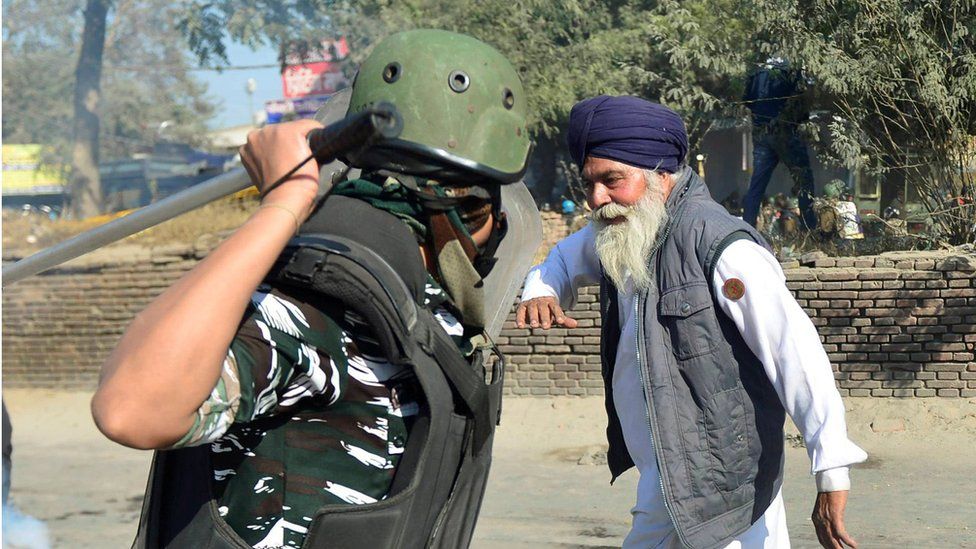

Given that India is still an agrarian-based society, what is taking place can be described as a crisis of a ‘colossal proportions’. This can be explained in just five words: hijack of agriculture by corporations.
By Nazarul Islam
Densely populated India with 1.3 billion souls is arguably plagued by farmer suicides, child malnourishment, growing unemployment, increased informalization, indebtedness and an overall collapse of agriculture.
Given that India is still an agrarian-based society, what is taking place can be described as a crisis of a ‘colossal proportions’. This can be explained in just five words: hijack of agriculture by corporations.
And the process by which it is being accomplished may be described also in just five words too: predatory commercialization of the country. Five more words to describe the outcome: biggest displacement in our history.
Not long ago, in late November 2018, a charter was released by the All India Kisan Sangharsh Coordination Committee (an umbrella group of around 250 farmers’ organizations) to coincide with the massive, well-publicized farmers’ march that was then taking place in Delhi.
The specific charter stated:
“Farmers are not just a residue from the past—the ‘Kisan (chashi), agriculture and the village structure are integral to the future of India Andre world”.
The country’s farmers have shared that they were alarmed at the economic, ecological, social and their existential, as well as the persistent state neglect and discrimination against farming communities.
Now in 2020, rather than responding to these requirements, we see the Indian government’s promotion and facilitation of (by way of recent legislation) – the ‘corporatization’ of agriculture and the dismantling of the public distribution system – this may well include the laying of groundwork for contract farming.
Successive administrations have made the country dependent on volatile flows of foreign capital and India’s foreign exchange reserves have been built up by borrowing and foreign investments. The fear of capital flight is ever present. Policies are often governed by their drive to attract and retain these inflows and maintain market confidence by ceding to the demands of international capital.
This throttling of democracy and the ‘financialization’ of agriculture would seriously undermine the nation’s food security and leave almost 1.3 billion people at the mercy of international speculators and foreign investment.
But agricapital’s free-for-all bonanza and the planned displacement of tens of millions of cultivators has mirrored what has been happening across the world for many decades: the consolidation of a global food regime based on agro-export mono-cropping (often with non-food commodities taking up prime agricultural land) linked to sovereign debt repayment and foreign exchange inflows and earnings and World Bank/IMF ‘structural adjustment’ directives.
The outcomes have included a displacement of a food-producing peasantry, the dominance of Western agri-food oligopolies and the transformation of and countries from food self-sufficiency to food deficiency. Little wonder then that among the owners of global agribusiness family firm Cargill 14 are now billionaires – the very company that profited from running down India’s edible oils sector in the 1990s.
It is not that India needs these people. It is already the world’s largest producer of milk, pulses and millet and the second-largest producer of rice, wheat, sugarcane, groundnuts, vegetables, fruit and cotton. This is despite India’s farmers already reeling from the effects of three decades of open policy, and further from decades of public under-investment/disinvestment and a deliberate strategy to displace them at the behest of the World Bank and predatory global agri-food corporations.
If un-repealed, the recent legislation represents the ultimate betrayal of India’s farmers and democracy as well as the final surrender of food security and food sovereignty to unaccountable corporations. This legislation is wholly regressive and will eventually lead to the country relying on outside forces to feed its population – and a possible return to hand-to-mouth imports, especially in an increasingly volatile world prone to conflict, public health scares, unregulated land and commodity speculation and price shocks.
A shift towards food sovereignty – engulfing local people’s right to healthy and culturally appropriate food and their ability to define and control their own food and agriculture systems – is the key to achieving genuine independence, national sovereignty, food security and facilitating farmers’ demands.
_____________________
About the Author
 The Bengal-born writer is a senior educationist based in USA. He writes for Sindh Courier and the newspapers of Bangladesh, India and America.
The Bengal-born writer is a senior educationist based in USA. He writes for Sindh Courier and the newspapers of Bangladesh, India and America.